Book Summary and Analysis |
History, Philosophy, Politics and Society | Popular Psychology, Personal Growth and Self-Help
A Guide to
Robert Greene’s
The 48 Laws of Power
Summary and Analysis,
Key Ideas and Facts
by I.K. Mullins
Copyright©2015 I.K. Mullins. All Rights Reserved. No part of this book may be reproduced or retransmitted in any form or by any means without the written permission of the author.
Should you have any questions, please contact us at permissions@insightfulreader.com
PART I. A SUMMARY OF THE KEY IDEAS AND FACTS IN ROBERT GREENE’S THE 48 LAWS OF POWER
Law 17: Keep others in suspended terror: cultivate an air of unpredictability
According to Greene’s Seventeenth Law of Power, humans are creatures of habit and routine. This is why they find it comforting and reassuring when they see familiarity in the actions of other people. When you intentionally act in unpredictable ways, you throw people off balance and make them spend their time and energy trying to understand your behavior. When you take this tactic to an extreme, it can intimidate and scare people.
For example, the game of chess includes patterns that have been used before. Your opponent looks for the patterns in your game and tries to foresee your future moves in accordance with these patterns. When he cannot find anything predictable, you get a significant advantage in your game.
***
Analysis and Comments on the Seventeenth Law of Power
According to Greene, the Seventeenth Law of Power can be applied in practice by using the following ideas:
- Unsettle those around you by acting unpredictably. Act like you do not have a clear strategy. Distort or abandon your old patterns. Change your behavior in order to overcome the burden of habit and routine.
- When you change your patterns on a daily basis, you confuse people and arouse their interest. In this way, you will be constantly in their minds, gaining a certain amount of their respect.
- Use predictability when you need to create a “smoke screen” that conceals your deceptive actions.
- On some occasions, your unpredictability can hurt you, especially when you are in a subservient position. Then, it is better to make people feel comfortable by following predictable patterns in behavior. When you “overdo” unpredictability, people might view it as a sign of your indecisiveness, or even a sign of some serious psychological condition.
* * *
The following ideas, facts and comments go beyond Greene’s book and provide additional insight into the Seventeenth Law of Power:
Being predictable can hurt you even if your enemies do not take advantage of your predictability:
- A predictable person is often viewed as a boring and limited person.
- Predictability keeps us from changing when change is needed.***
***
Law 18: Do not build fortresses to protect yourself—isolation is dangerous
According to Greene’s Eighteenth Law of Power, fortresses will not protect you from your enemies because isolation can cut you off from important information. Isolation can also make you a noticeable and easy target for your enemies. You are better protected from your adversaries when you are moving in the crowd, gathering information and finding allies.
***
Analysis and Comments on the Eighteenth Law of Power
According to Greene, the Eighteenth Law of Power can be applied in practice by using the following ideas:
- Remember that when you isolate yourself, you disconnect yourself from various sources of vital information, and you have little idea about what is happening around you.
- Isolation has a tendency to sink you deeper without your noticing how your isolation grows. It is dangerous to frequently retreat to isolation.
- Learn to fight the desire to hide behind the walls of your “castle.” Do not limit sources of information, and make yourself more available for social contacts. Spend your time with the crowd, mingling in order to get vital information.
- Communicate with your old allies and seek new allies as well. Make yourself socialize in different circles.
* * *
The following ideas, facts and comments go beyond Greene’s book and provide additional insight into the Eighteenth Law of Power:
- People gauge their feelings and emotions mostly through interactions with other people.
- Biologists propose that our emotions evolved thanks to our early ancestors who lived in groups, being continuously involved in social interactions with one another. When a person is isolated from other people, he or she does not have anyone to mediate his or her feelings of anger, anxiety, fear and sorrow. As a result, the person develops a distorted sense of self.
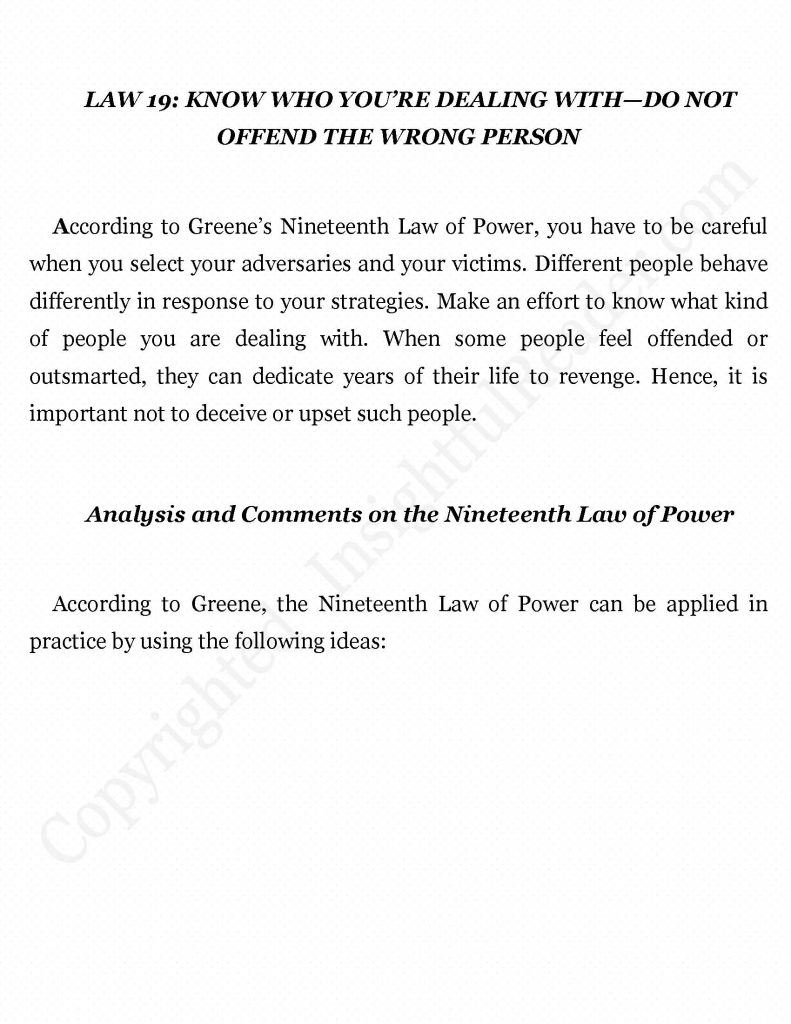
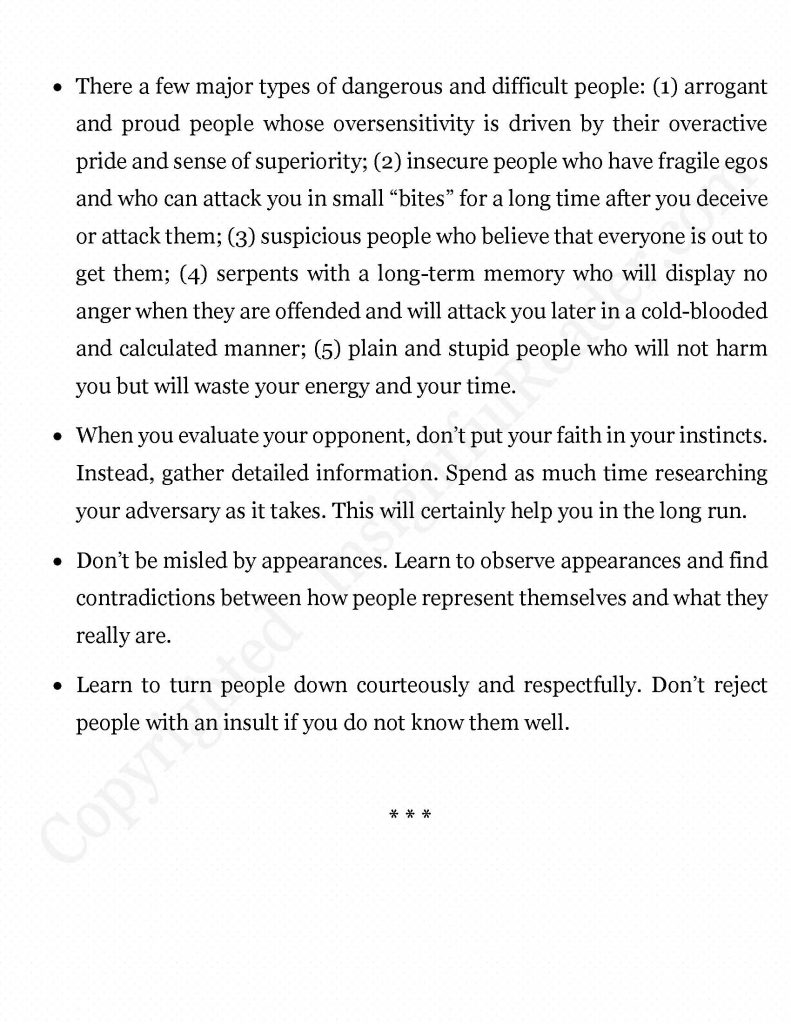
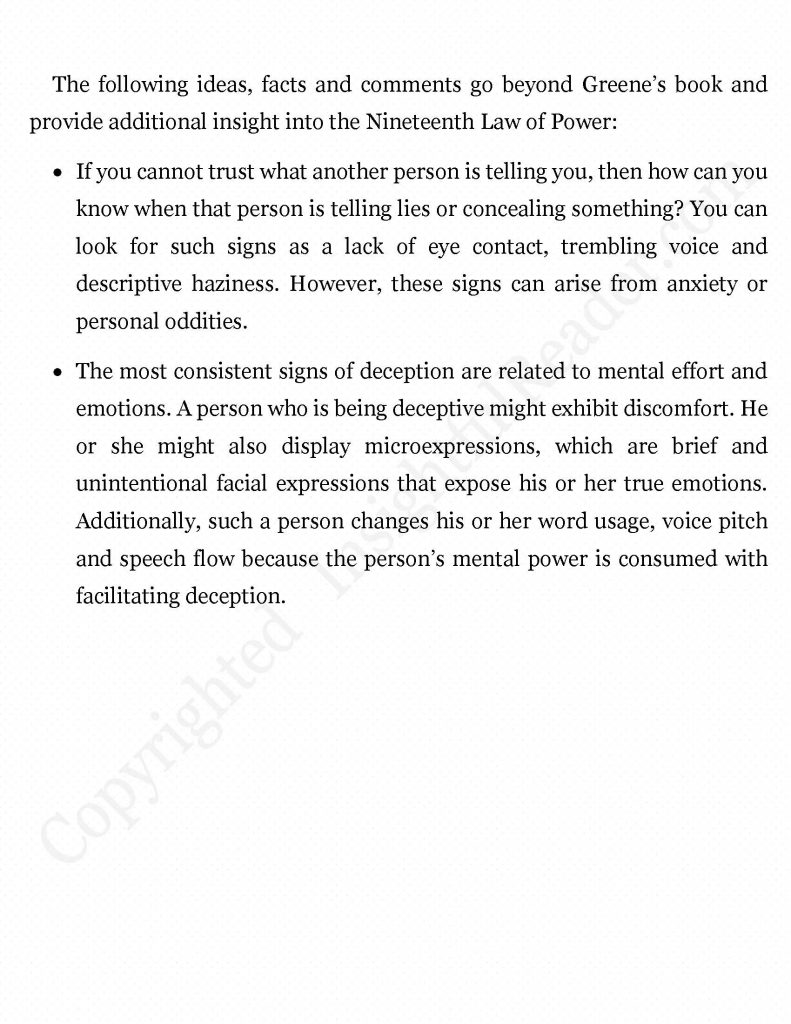

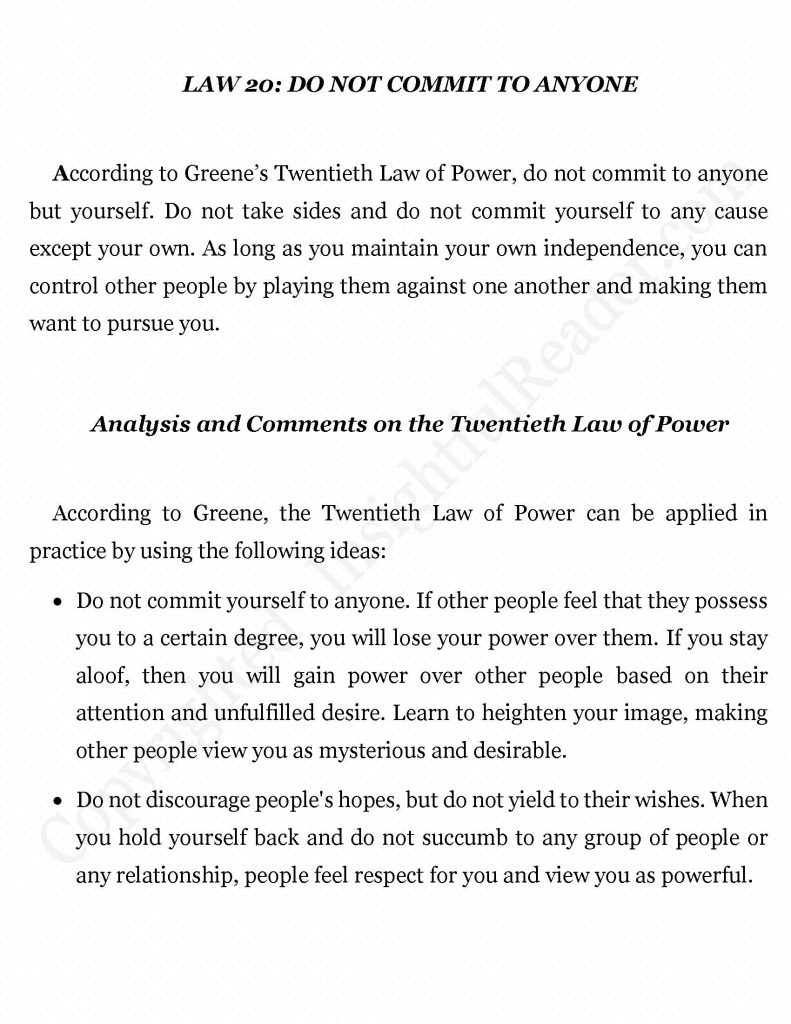
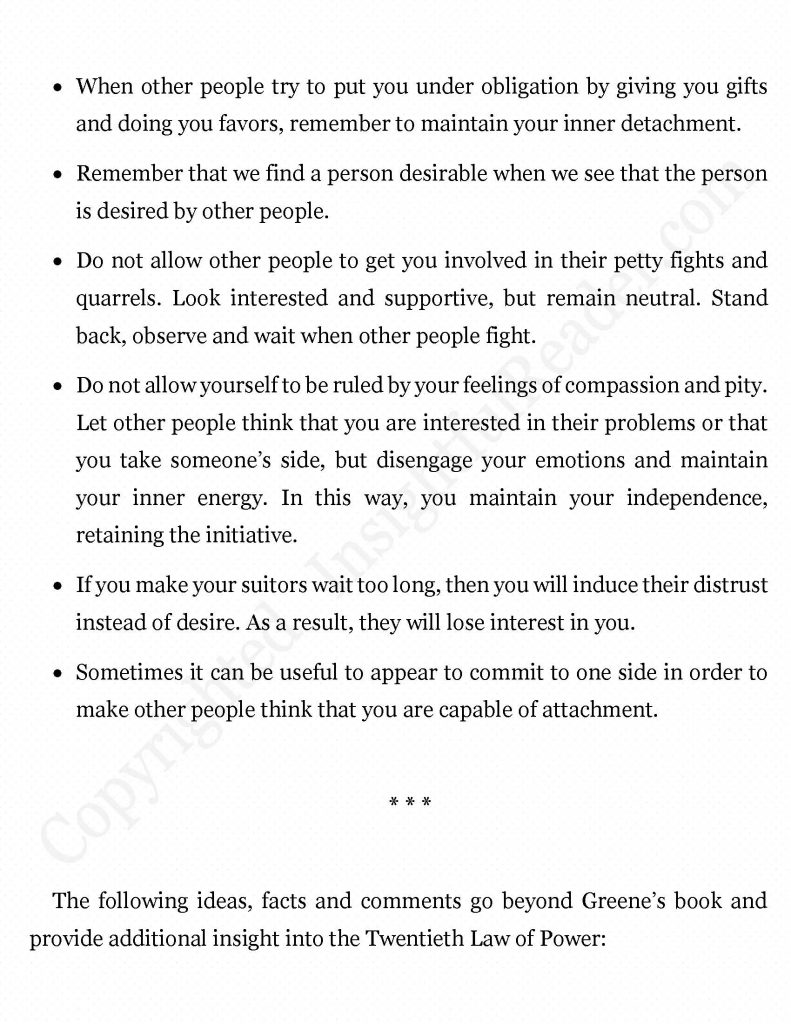
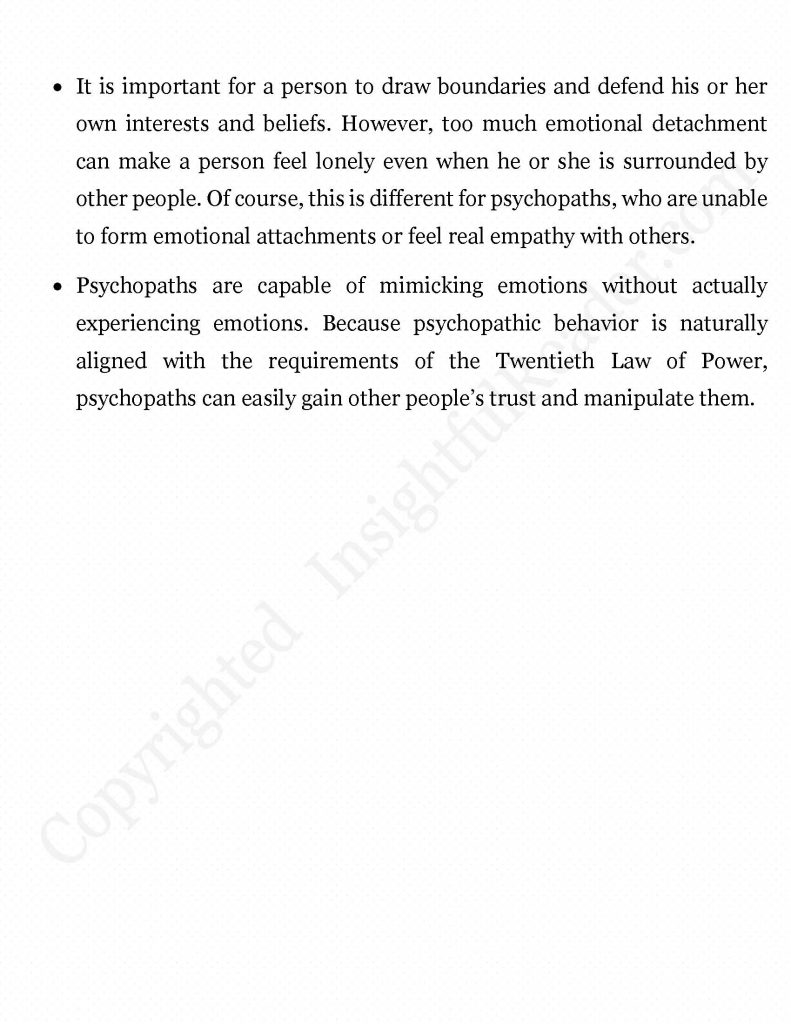
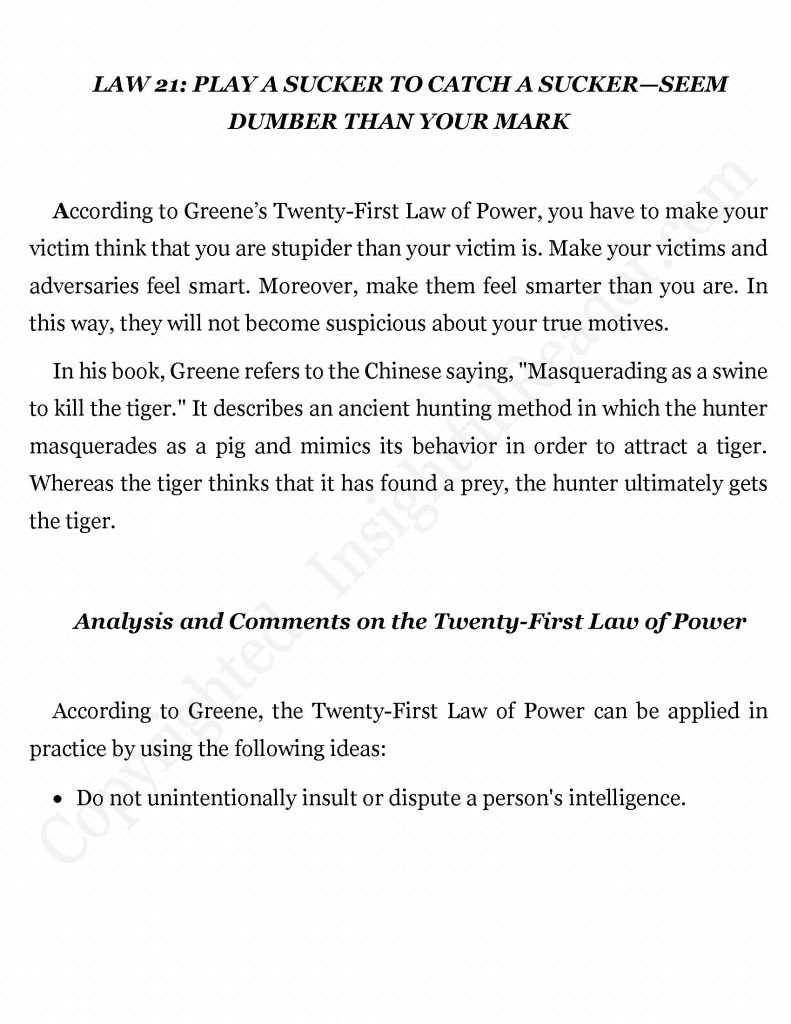
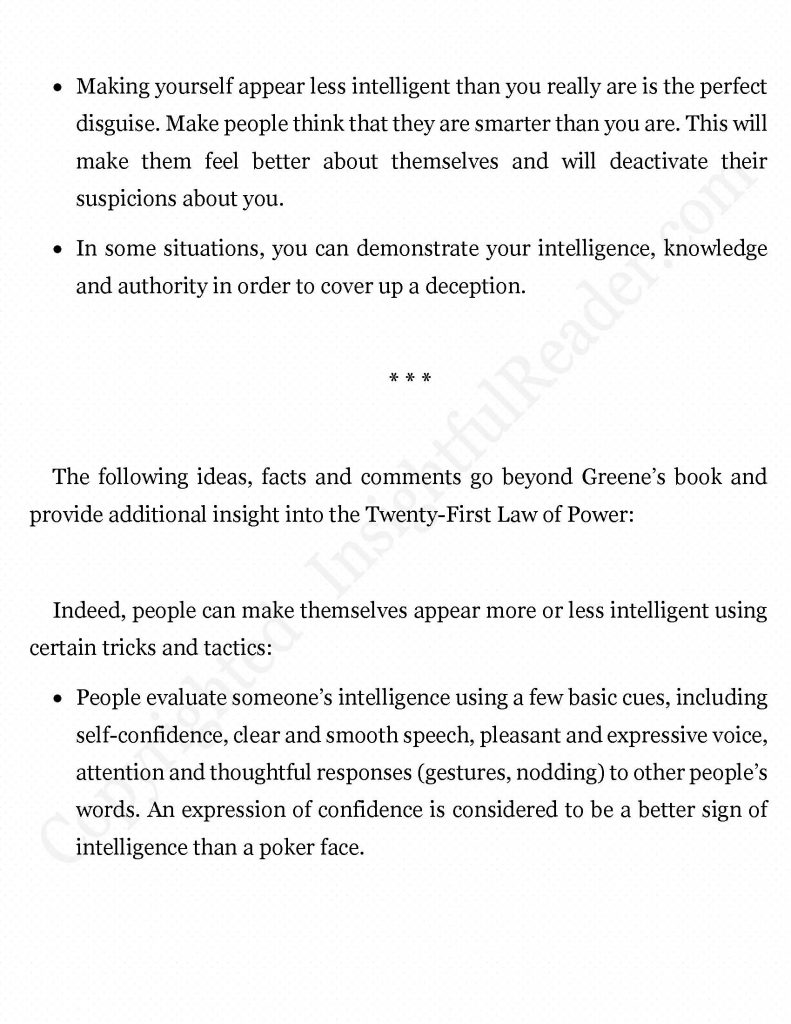

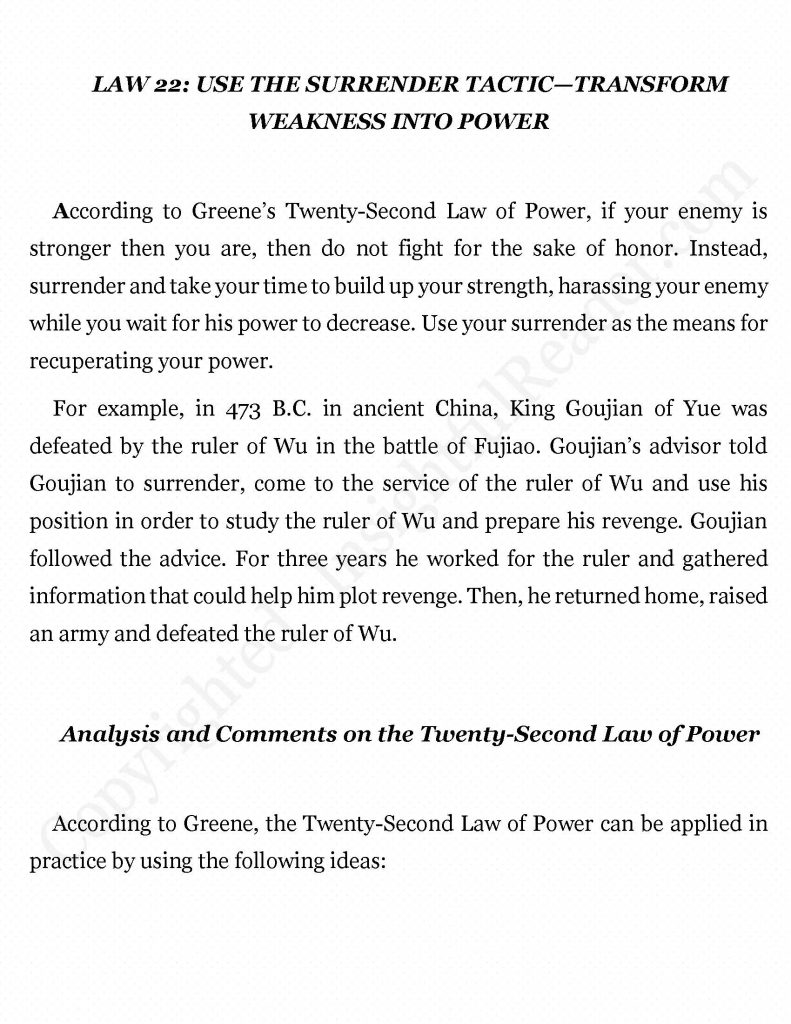
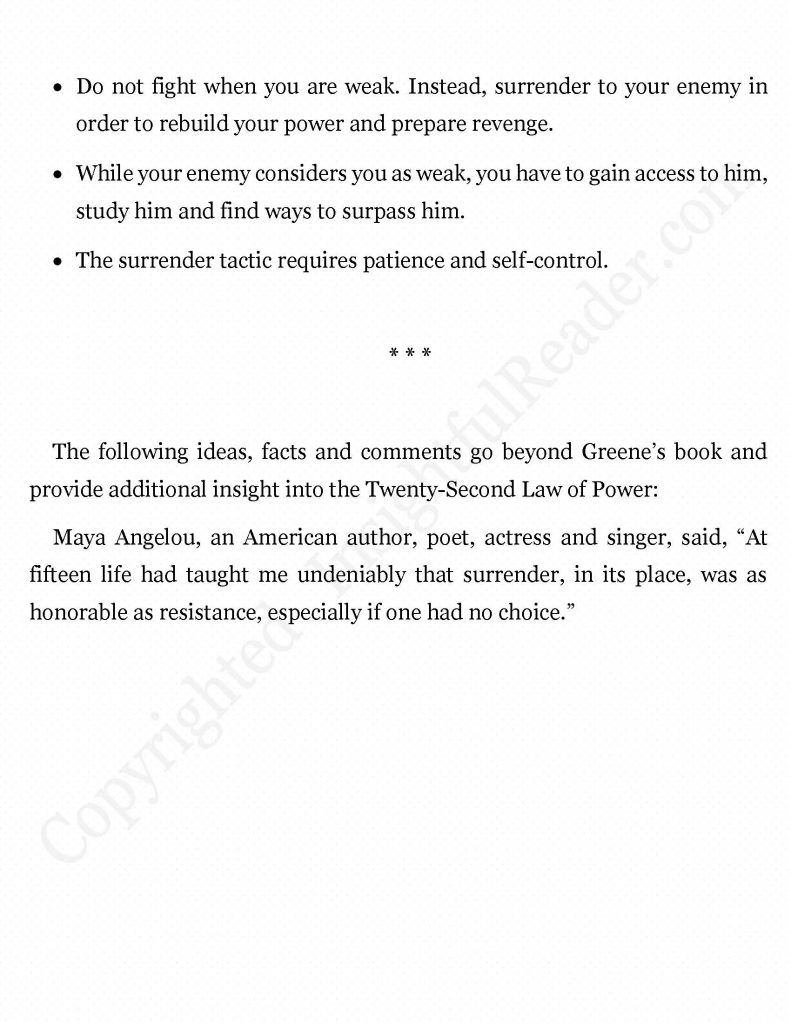
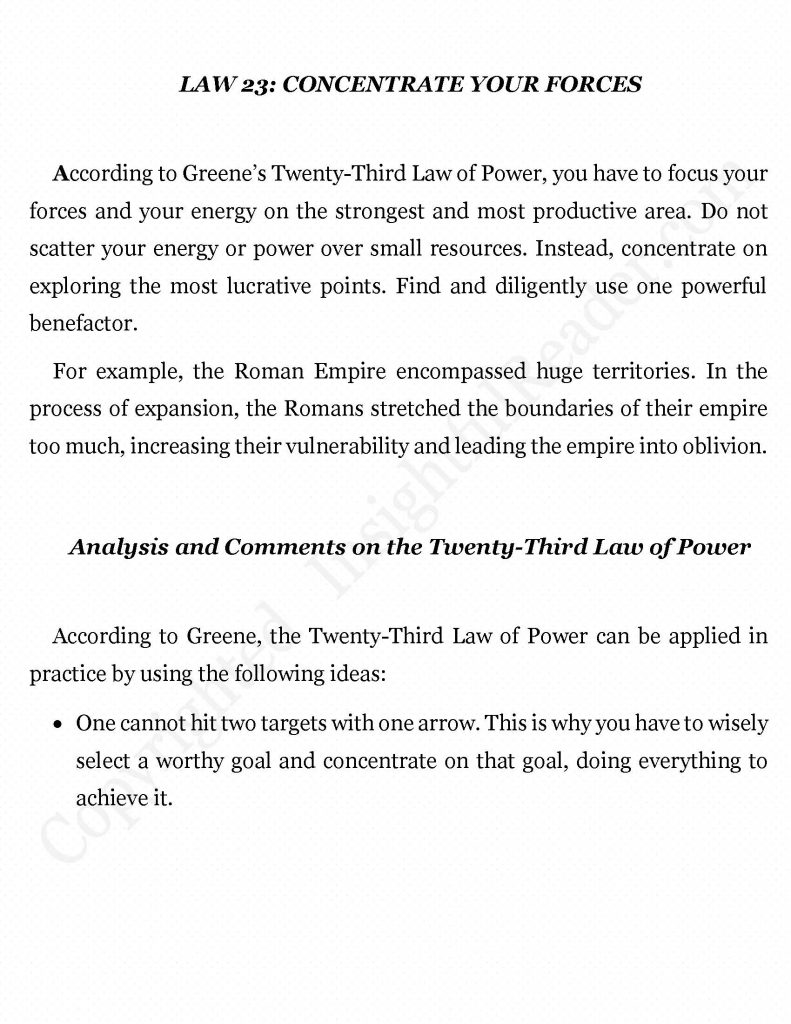
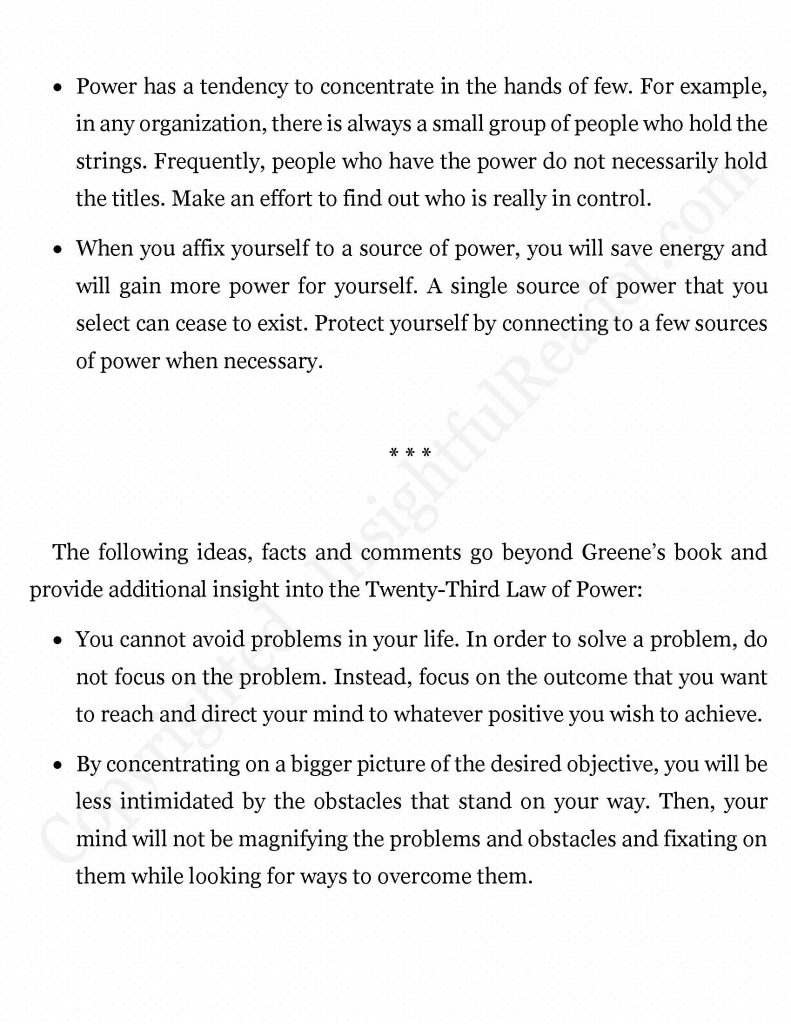

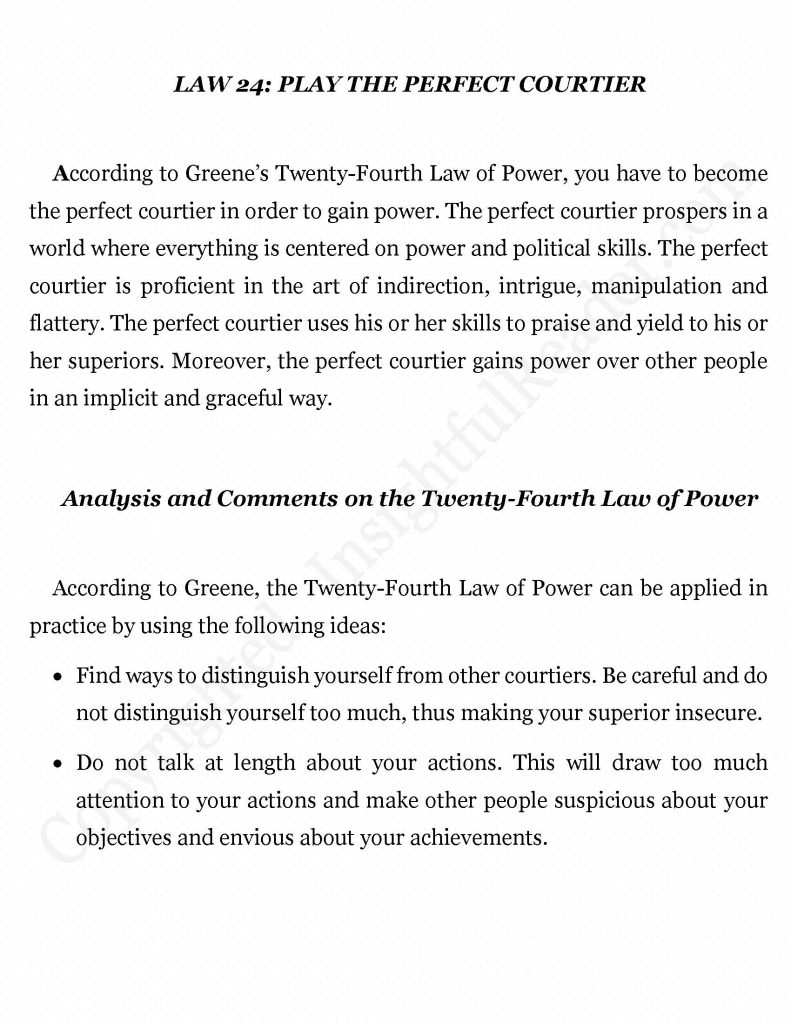
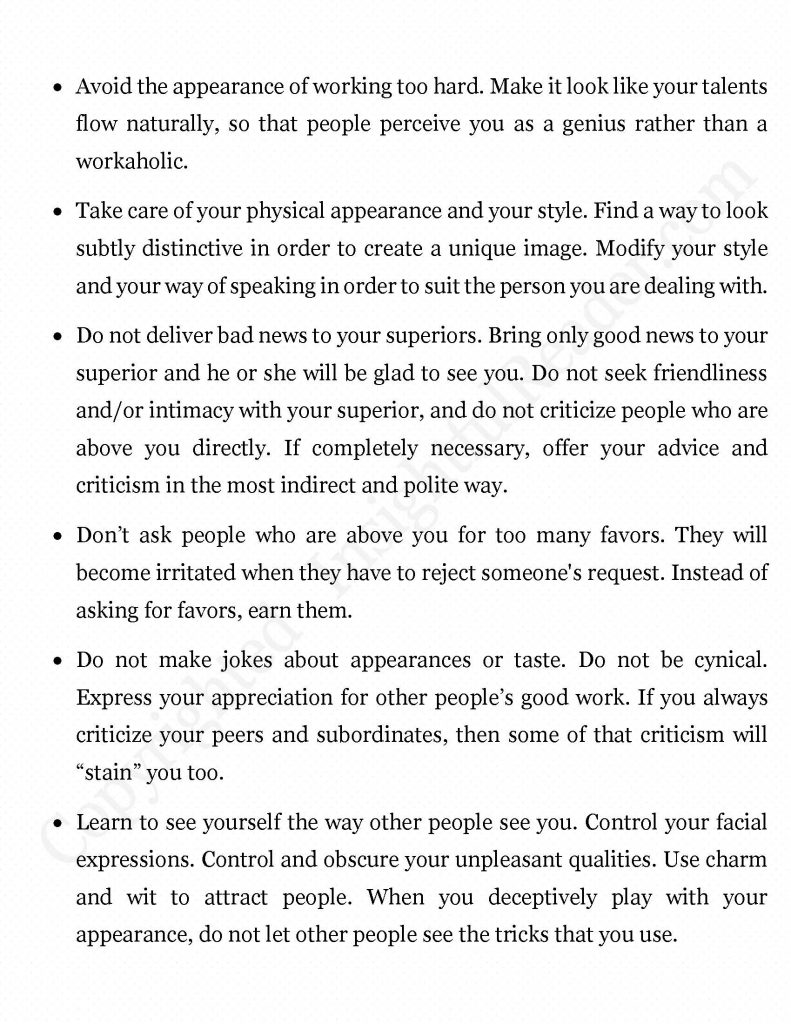
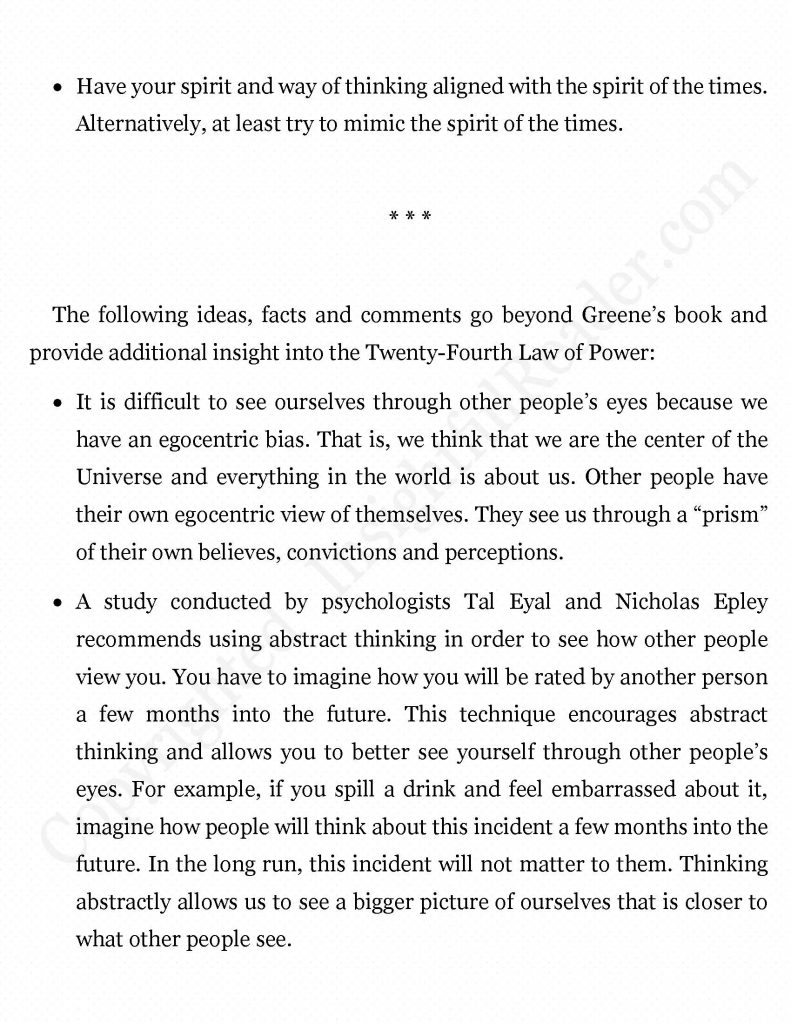

Go to Part I A Summary of Laws 25-32
Related content
Dead Wake by Eric Larson
Clinton Cash
Promoted links from around the web
Dead Wake by Eric Larson
Clinton Cash
